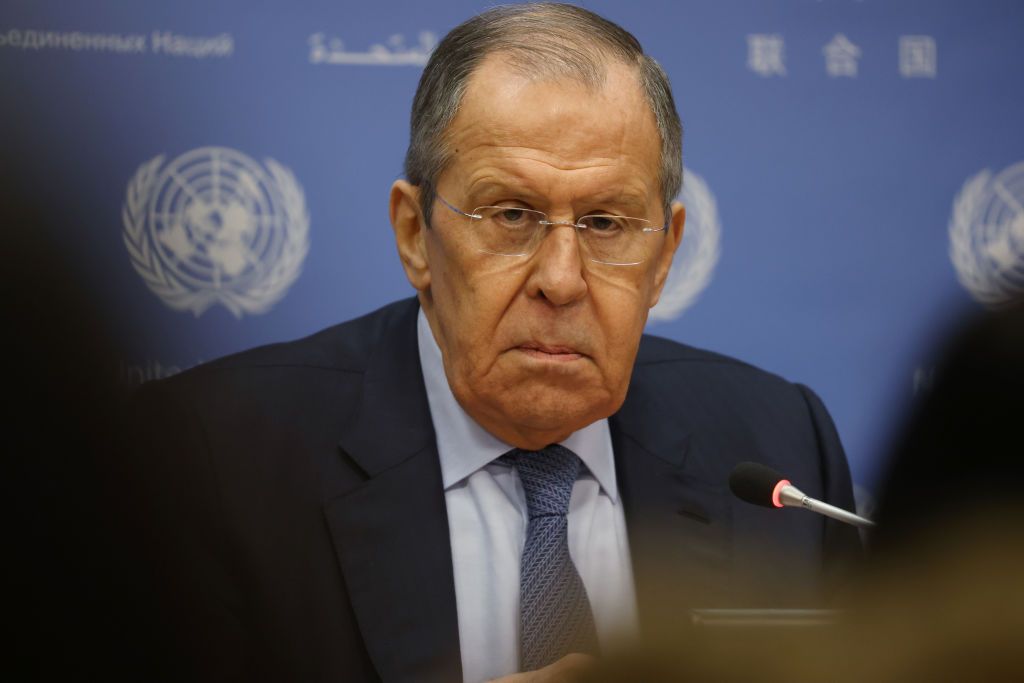Tensions between Russia and Armenia have risen due to Armenia’s dissatisfaction with Russia’s lack of support during Azerbaijan’s offensive into Nagorno-Karabakh in September 2023. Russian Foreign Minister Sergey Lavrov accused Armenia of distorting history in an attempt to sever relations with Moscow. Armenia’s Prime Minister Nikol Pashinyan threatened to leave the Russian-led Collective Security Treaty Organization if their security concerns were not addressed. Lavrov stated in an interview that the current situation does not inspire optimism, pointing to Armenia’s efforts to distance itself from Russia by considering applying for EU membership and joining the International Criminal Court.
Russia’s influence in the region has been challenged as Armenia seeks closer ties with the West. NATO Secretary General Jens Stoltenberg visited Armenia for the first time to discuss the situation in the South Caucasus, which Lavrov viewed as an attempt by the alliance to interfere in the region. Lavrov warned that Western powers are trying to disrupt stability in the South Caucasus and turn it into a zone of Western domination. Despite these concerns, Armenia has been vocal in its criticism of Russia, accusing Moscow of being an unreliable partner. The country’s decision to join the International Criminal Court and consider EU membership has further strained relations with Russia.
The conflict between Armenia and Azerbaijan over Nagorno-Karabakh has reignited tensions in the region, with Azerbaijan launching a new offensive in September 2023. Despite Russia’s role as a peacekeeper in the region, Armenia felt let down by Moscow’s failure to prevent Azerbaijan’s actions. This has led to Armenia seeking alternative alliances and looking towards the West for support. Lavrov’s accusations of Armenia distorting history to break off relations with Russia highlight the growing rift between the two countries. Armenia’s potential departure from the CSTO and its consideration of EU membership signal a significant shift in its foreign policy.
Russia’s attempts to maintain influence in the South Caucasus region have been challenged by Armenia’s efforts to strengthen ties with the West. The West has responded to signals from Armenia, as the country has accused Russia of being an unreliable partner and taken steps to distance itself from Moscow. Russia views these actions as attempts to disrupt stability in the region and turn it into a zone of Western domination. The Kremlin has criticized Armenia’s decision to join the International Criminal Court and consider EU membership as unfriendly steps. The complex geopolitical dynamics in the South Caucasus continue to evolve, with Armenia seeking new partnerships and alliances.
The ongoing tensions between Russia and Armenia highlight the shifting alliances and power dynamics in the South Caucasus region. Armenia’s dissatisfaction with Russia’s response to Azerbaijan’s offensive in Nagorno-Karabakh has strained relations between the two countries. Russia’s role as a traditional ally of Armenia is at risk as Armenia considers alternative partnerships with the West. The potential departure of Armenia from the CSTO and its consideration of EU membership represent significant changes in the country’s foreign policy. As Armenia seeks to assert its independence and strengthen its position in the region, the geopolitical landscape in the South Caucasus remains volatile and uncertain.


